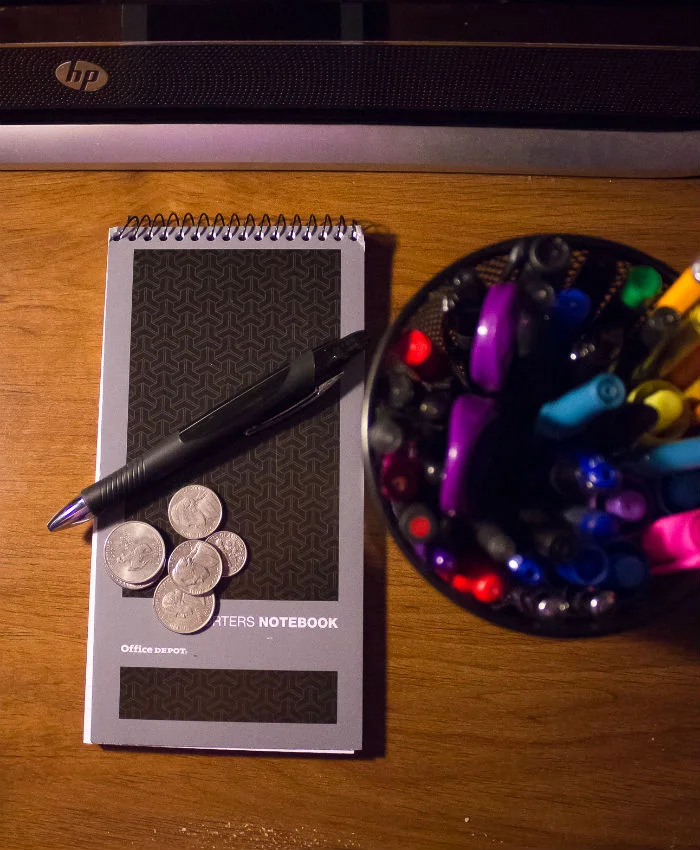Craft, commerce and cash flow
One of the most valuable things you can understand as a freelancer is cash flow. Once I convince people to pay me to write for them, I have to follow up with them and make sure that they pay me on time. God forbid that something went wrong with my equipment. Then I’d have to make sure I had enough money to pay for repairs.
I can’t give you concrete advice on how to master cash flow because that would imply that I’ve mastered it myself. I haven’t. But I can share what I’ve learned so far.
Using a software to send and keep track of invoices helps me to stay on top of how much money is coming in and when it’s due. Like I mentioned in a previous blog post (“Six free tools for getting stuff done”), Wave manages my invoices and categorizes my expenses, making it easier to figure out what I can write off come tax time. Once you get a handful of steady clients, you’ll get a sense of how much you’re making per month and how much you're spending in order to produce those stories.
If you’re wondering what I mean by steady clients, I’m referring to the one or two or three clients you can write for on a regular basis. Journalism publications either pay on a per word basis or a per piece basis, which is why journalism isn’t monetized quite the same as other freelance gigs like blogging or web design. Journalism, from my experience, is paid for on a per word or per story basis, which makes it harder to calculate how much you need to make a living.
Rather than take the plunge into freelancing full-time, I took a part-time job in communications in order to use my writing skills and support myself financially. When I left my previous full-time job as a managing editor, it was due to health reasons, stress, and several other factors. But I didn’t want to trade in one stressful situation for another.
Yes, some people see working part-time in a negative light. At times I’ve felt a little a bit bummed about the fact that I’m not working full-time as a journalist. But I take solace in the fact that I’m at least writing in a different capacity and I think freelancing part-time and working part-time offers a healthy balance between financial stability and creative freedom. I’m not sure if a full-time position is in my future, but I will be working diligently to create a portfolio that can speak for itself.
That said, working part-time has eased the financial pressure of making rent every month. But the pressure isn’t fully removed. Therefore, I think it’s helpful to sit down and calculate how much you’d like to make in a month through freelance work and pitch however much you can reasonably produce and profit off of to make that amount.
It’s important to note that it’s not about churning out content. I balance longer pieces for bigger publications that may pay better with shorter stories that I can turn around quickly but may not pay as much. If you’re getting started in freelancing, I would still ask for more money per story or per word, and begin lining up more lucrative pitches for big newspapers or magazines while keeping your eye out on local stories that you report and write efficiently.
Having a savings is key, too. Setting aside some money for a rainy day will reduce stress when clients inevitably don’t pay on time or in some cases not at all. Some say you should save three to six months rent, but even I’ve found that difficult to do. (Unfortunately, many people don’t have $400 to cover an emergency expense). I would say save as much as you can for unexpected freelance expenses in your business bank account and save as much as you can in in your personal account for emergencies.
For more examples of how freelance journalists make a living, here’s some helpful reading:
Columbia Journalism Review: Survival strategies of an online freelance
Poynter: Thinking about making the jump to freelance? Here’s what you need to know
Remember, not everything is going to be perfect financially, but it’s important to figure out how much money you need to live a comfortable life and be prepared when life turns your plans upside down.
What are some of your tips for balancing craft, commerce, and cash flow? Leave a comment or drop me a line at contact@thefreelancebeat.com




